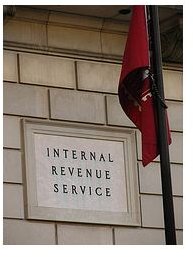How to Close a Small Business the Right Way: Use This Checklist
How to Close a Small Business
Perhaps you’re retiring, or want to relocate to another city or town. Whatever, the reason, you don’t want to skip any important factors or steps. Business experts often say that closing a business means just as much work as opening a business. The very first thing you should do, however, is notify all of your employees about the closure and give them enough time to accept it as well as the reason.
Closing your business doesn’t have to lead to a headache if you use an effective checklist to guide you through closing down your business.
Checklist for Closing Your Business
- Make It Legal – Other than sole proprietorships, every other entity should hold a meeting and vote for the dissolution of the business. A sample business dissolution can be found in our Media Gallery. This document should be filed with your Corporation Commission. All stock certificates or membership shares should be collected by the President or CEO of the corporation and kept with the corporate books.
- Sales Tax Closure – If your business pays sales tax, you will also need to contact your taxation and revenue or sales tax department and submit a dissolution of business in order to obtain a tax clearance. Otherwise, you may have to pay late fees or fines for sales tax reports not filed.
- Licenses and Permits – If you have city, town, state, or federal licenses for your business, contact the issuing organization and find out how to cancel your permits and licenses.
- Landlord – If you rent your business space, make sure to read your lease agreement and find out how to cancel it. If you are able to cancel your lease, give your landlord at least thirty days notice in writing and send it certified mail that requires a signature upon receipt. If you own the building and land where your business sits, make an appointment with a Realtor to help you sell it.
- Insurance Policies – Contact your insurance broker to find out how to cancel both your business liability insurance and your workman’s compensation insurance if you have employees. Give your insurance agent thirty days to complete this as well. Be sure to ask if you have a premium refund coming your way if you cancel between renewal terms. If you have an employee-based health care plan, contact the health care insurance provider and let them know your closing date. This is especially important as all of your employee’s will receive a change to enroll in a COBRA plan or may even be eligible for the government’s COBRA subsidy plan.
- Receivables and Payables – Take a good look at your financial records and make sure you don’t owe any money to vendors and customers don’t owe any money to you. For your vendors, once they are paid in full, it’s a good idea to request a letter from them stating so. Make sure you close your vendor accounts so no one can use them. If you have receivables that are bad debts, make sure to keep track of these for your accountant as this is a deductible expense. Make sure give both your customers and vendors ample notification that your business is closing. If you have customer deposits for products that have not been delivered, make sure you return them.
- Hold a Sale – If you have inventory, hold a going out of business sale and get what cash you can. Don’t expect customers to pay full price and offer huge discounts to put cash in your pocket.
Payroll, Bank Accounts, Loans, and Credit Cards
Don’t forget about payroll, taxes, your bank accounts, loans, and company credit cards.
- Payroll and Final Taxes – Complete a final payroll and deposit your 941 taxes as required.
- Payroll Reports – Make sure you submit final payroll reports to your state’s Department of Labor and Workman’s Compensation Department. If you must pay state withholding or city withholding tax for your employees, file these final reports as well.
- Bank and Credit Cards – Make sure you cancel your business credit cards and close both your operating and payroll accounts. If your employees have company credit cards, don’t forget to cancel them.
- Loans – If you have any company loans, you will need to meet with your lender to let them know how and when the money will be repaid. You may need to renegotiate your loan or turn it into a personal loan.
Internal Revenue Service Requirements

Internal Revenue Service - The IRS will require you file certain reports including your final 941 quarterly wage report and your 940 FUTA report. You will also need to file a final tax return as well as other IRS related forms. To aid you in the IRS process, you can work with your accountant or download a handy IRS How to Close a Small Business Checklist from our Media Gallery.
Let People Know Where You Are
Finally, it’s always a good idea when closing down your business to let former associates, employees, and even vendors know where you can be reached. The easiest way to do this is via a bulk email or write a letter that provides your contact information and mail to whomever you think may need it in the future. Be sure your employees know how to reach you in case they need items such as an employee letter of recommendation.
Summing It All Up
Perhaps another good tip on how to close a small business is to offer a thank you to all of your customers and vendors. This can be done in your local newspaper as a sort of business exit ad or via postcards.
Starting a business and closing a business are two different things. If you follow this checklist and seek the advice of your accountant on filing your final tax returns, the process will be much easier.
